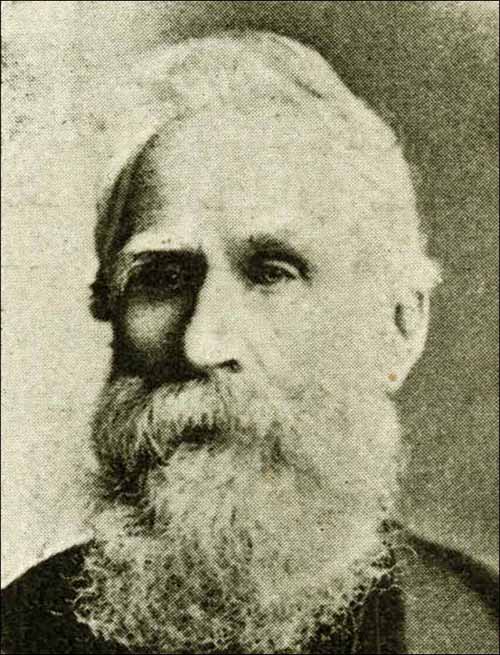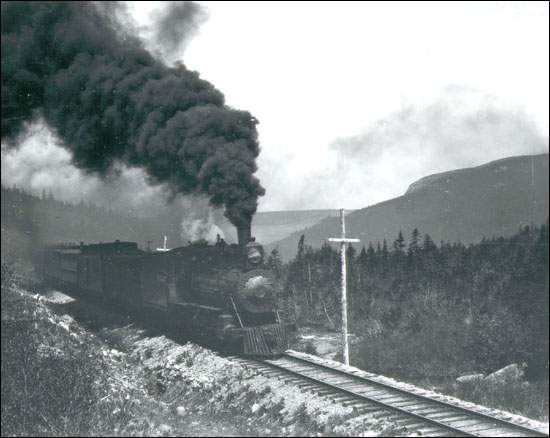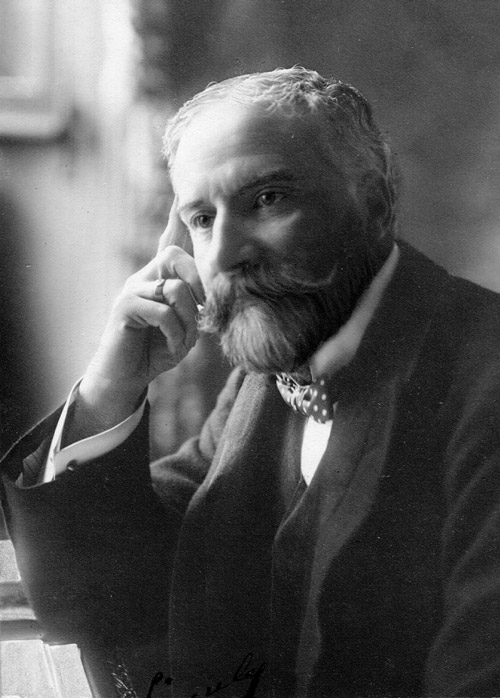Responsible Government, 1855-1933
'Responsible government' meant that the Executive Council, or the government, was 'responsible' to the legislature. In other words, the governor, as the Crown's representative, appointed elected members of the Assembly - and sometimes members of the appointed upper house, the Legislative Council - to administer the colony. They held office only so long as they were able to maintain the support of a majority of members in the House of Assembly. Usually, the government was drawn from the largest party in the Assembly, but sometimes the head of a minority party or a coalition was appointed premier. The premier or prime minister (the title used after 1909), and other members of the Executive Council, remained in power for a four-year term, unless defeated in the House of Assembly. A general election would then have to be called. The Legislative Council could defeat (until 1917) or amend legislation coming from the Assembly.
Responsible government was instituted in Newfoundland in 1855, following a general election won by the Liberal (Reform) party led by Philip F. Little. A Roman Catholic lawyer from Prince Edward Island, he became the colony's first premier.

The leader of the Conservative (Tory) Opposition was Hugh W. Hoyles. Supported by most Roman Catholics and Methodists, the Liberals remained in power until 1861. But in that year the governor dismissed the Liberal government, installed the Conservatives, and presided over elections (attended with some violence) which the latter narrowly won with Methodist help.
The Denominational Compromise
The result was a Roman Catholic - Protestant political split, which from 1865 the Conservative premier Frederic B.T. Carter sought to heal. He did this by instituting a system whereby seats in the Assembly, Executive Council positions, government offices, judicial appointments and public monies were shared between the major denominations - Roman Catholic, Anglican and Methodist - on a proportional basis. This "denominational compromise" was adopted by all political parties, and became a fundamental, if unwritten rule of Newfoundland politics. The principle was further embedded when, in 1874, the government grant for education was similarly divided between the three churches. It came to be criticized as inefficient and wasteful, but the compromise prevented open sectarian warfare.
The compromise was threatened by the confederation issue, which dominated colonial politics for a decade after 1864, since the vast majority of Roman Catholics were anti-confederate. But the confederate and anti-confederate parties - which temporarily replaced the Conservatives and Liberals - both commanded Protestant and Catholic support. Led by the Anglican merchant Charles Fox Bennett, the anti-confederates won the 1869 election with an overwhelming majority, so large that confederation disappeared for many years as a practical political issue. From this time on, politicians took to smearing each other as confederates when convenient, just as sectarian prejudices were sometimes manipulated to shore up political support.
The Conservatives used the sectarian tactic successfully in the early 1870s, managing to remove Bennett from power. Led by Frederic Carter until 1878, and thereafter by William V. Whiteway, the Conservatives eventually absorbed the Liberals. Their agenda was dominated by the effort to create economic alternatives to the fishery and to remove foreign competitors from Newfoundland waters. During the 1870s most of the coast of Newfoundland had been settled and, as the historian David Alexander argued, the traditional economy based on the inshore cod fishery had reached the limits of its expansion. Periodic downturns in the economy put thousands of people on government relief, and even in good times the fishery was not able to support new entrants. By the 1880s, many people were emigrating to the United States and Canada.
Newfoundland governments pursued several goals to help resolve long-term economic problems. They attempted to promote diversification within the fishing industry. They encouraged the development of alternative and supplementary industries, such as mining, agriculture and forest products. And they attempted to pressure the British government into negotiating an end to French fishing rights on the Treaty Shore, so that the west coast could be opened up to land-based economic developments. While these general aims were supported by politicians of all parties, there were considerable differences of opinion over how they were to be achieved. Two issues were particularly divisive and controversial. One was how to deal with the problem of the French fisheries on the Treaty Shore and on the Banks; the other was the ambitious and potentially expensive proposal to build a railway across the island.
The French Treaty Shore and Railway Issues
From 1855, Newfoundland was self-governing in local matters, and was fully responsible for its own finances. But external affairs were still controlled by the imperial government. Thus the implementation of the Anglo-French treaties which governed the French Treaty Shore fishery was an imperial responsibility. Accordingly, the British government felt it had to prevent the Newfoundland government from taking any actions that might possibly contravene the treaties. This imposed a real limitation on responsible government, in that the colonial government did not have full sovereignty over the French Shore. This was much resented in the colony, and successive governments fought - with some success - to extend their jurisdiction over the French Shore. The major political difference of opinion was whether aggressive confrontation, with both Britain and France, was the better option, or whether the Newfoundland government should pursue compromise and diplomacy. Barriers to economic development on the Shore were finally removed by an Anglo-French agreement 1904, but some time before then, the imperial government had lifted its original ban (imposed in the 1870s) on building a railway across to the west coast.
The railway and French Treaty Shore issues were closely linked, and were central to the politics of the late 19th century. The Conservatives - who appropriated the "Liberal" label after 1889 - generally favoured railway-building as a way to solve economic problems, and a compromise approach to the French Shore issue. Those who opposed the railway, which was begun in 1881, became known first as the Reform, and later as the Tory party. Their approach to the French issue was generally more aggressive and hawkish.

During the late 19th century and up until 1909, the Liberal administrations of William Whiteway and Robert Bond (who became premier in 1901) focussed much of their attention upon railway building and land-based industry.

Bond was particularly concerned to negotiate a reciprocal free trade agreement with the United States, hoping to get access to the American market for Newfoundland products, including fish, and to attract American investment. Canada strongly opposed these initiatives, and there was also protectionist opposition in New England. As a result, the draft treaties which Bond negotiated in 1890 and 1905 were not ratified.
The FPU and World War I
Bond's Liberal party was defeated by the newly-created People's party, led by Edward Morris, in 1909 - the regularly-scheduled 1908 election had resulted in a tie, unique in Newfoundland political history. The same period saw the emergence of William Coaker's Fishermen's Protective Union [FPU], founded in 1908, which soon developed a political wing. The FPU aimed to increase the incomes of fishermen by breaking the fish merchants' monopoly on the purchase and export of fish and the retailing of supplies, and wanted to revitalize the fishery through state intervention.
The union had emerged in Notre Dame Bay and spread among Protestant fishermen along the northeast coast. But it failed to make inroads in those parts of the island with Roman Catholic majorities. So a class-based political movement aimed at advancing the cause of rural working families once more revealed sectarian divisions within the electorate. Coaker and his party wanted to achieve their aims by winning enough seats to hold the balance of power in the legislature. The FPU did well in the 1913 election, becoming the official Opposition in all but name. But its political prospects were fatally damaged by the experience of the First World War which broke out the next year.
Normal party politics were suspended during the war. The war effort was run on behalf of the People's party government by a non-partisan, inter-denominational Patriotic Association until 1917, when a coalition National Government took over. This change was precipitated by a bitter and divisive debate over whether conscription should replace voluntary enlistment for the Newfoundland Regiment. This debate was particularly damaging for the FPU, whose leadership supported conscription against the wishes of rank and file members.
Newfoundlanders and Labradorians took great pride in the achievements of the Regiment, and in their country's representation in the Imperial War Cabinet and at the Versailles peace talks. Indeed, the country gained an unprecedented prominence in terms of international status and reputation. But the glow soon faded. The war left Newfoundland with a large debt and, because a prolonged economic recession set in after the war, chronic financial problems. The pre-war party structure had effectively disappeared. As a result, the politics of the years from 1919 to 1934 were characterized by fierce partisan battles between unstable factions. The electorate became increasingly disillusioned with politics and politicians. These conditions lay behind the suspension of responsible government in 1934.




